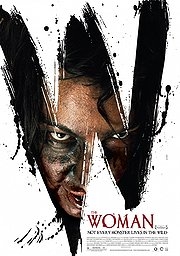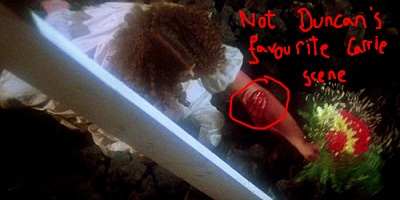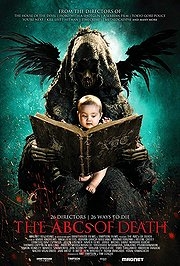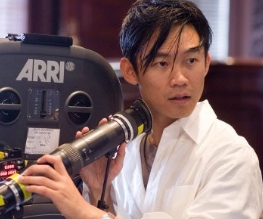The Woman

This twisted tale deliberately delights in shocking and disgusting its viewers into a gore-exhausted stupor. It’s basically Saw meets Pocahontas. Except while the animated Pocahontas we all know and love befriended humming birds and serenaded trees, director McKee’s version enjoys chowing down on human fingers and feeding her baby to a wolf. Tomato-tomatoe.

The film begins with a dark montage of this feral woman’s brutal lifestyle, which is swiftly juxtaposed with glaringly bright, loud scenes of an All-American style family (or so it seems). Even from the outset it’s obvious that almost all the Cleek family members are socially awkward (you know, the type you regret adding to the dinner party list because their kids always end up humping the cat). The action begins with the charming father, Chris Cleek (Bridgers) who goes hunting in the woods by his house one day and happens to stumble across the female Rambo.
Of course, he pursues the only logical option; hunting her down, knocking her out and chaining her up in his shed. Hey presto. Look what I brought home for dinner kids! Ok that’s not exactly what happened, but it may have been more merciful. Instead, he gathers up his dazed family to view his proudest catch, declaring that their new family goal is to “civilise her”. Some families have bake-a-thons, others take feral women hostage. Most of the family (the women) share the audience’s reactions of shock and disgust. However, we are left with unsettling dread caused by the look of bright-eyed fascination on the son’s little awed face. Uh oh.

The Cleek family either have a unknown translation for the word ‘civilise’, or a sanitation OCD, because the varying types of hygienic abuse which followed was surreal (blistering sponge baths and extreme power showers galore). Ironically, family man Chris reveals himself to be in much greater need of ‘civilising’ as his misogynistic treatment of women becomes blindingly apparent. Unfortunately son Brian (Rand) follows his father’s women-hating footsteps.
Even if the plot becomes gradually less and less believable, I still remained impressed by the cast performances. Bridgers convincingly allows his character’s hidden monster to peek through into his seemingly perfect life, before unleashing his true sadistic nature upon his terrified family. Rand gave a truly chilling performance as a young boy consumed with a fearless hunger for violence. McIntosh (the woman) also delivered a compelling performance as the savage victim, especially considering her lack of (understandable) dialogue.

McKee strives to hoist the tension throughout; using jilting (but sometimes deafening) soundtrack changes and worrying camera shots to potential weapons of abuse, however he doesn’t always succeed. The fast-paced alterations between booming rock tracks and silent shed scenes is somewhat overused, especially in the finale. A completely different ending track or complete silence would have recaptured the attention of the audience, as well as signalling a power change.
On the other hand, McKee somehow manages to weave genuinely laughable moments of dark humour within the midst of the grim screenplay. For example, after presenting the woman to the family, Brian tentatively asks his father, “Can we really keep her?” However McKee didn’t expect audiences to scoff at his dramatic finale. Which, unfortunately, is the weakest part of the film. What could have been a satisfyingly vengeful climax was reduced to comically exaggerated gore that completely surpassed the border of believably horrifying and entered the realm of the ridiculous.





Recent Comments